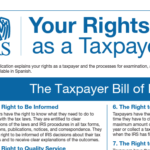Corporate Transparency Act/Beneficial Ownership Information Reports
Under the Corporate Transparency Act, Beneficial Ownership Information (BOI) of many Illinois businesses must be reported to the Financial Crimes Enforcement Network (FinCEN). Reporting Requirements All domestic and foreign corporations, limited liability companies, or other business entities that are registered with the Illinois Secretary of State’s Department of Business Services are required to file a








